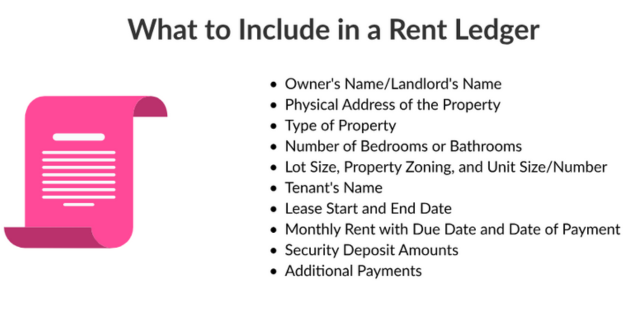House ownership is tricky and tends to entail understanding many different terms and acronyms, like PUD (Planned Unit Development) and HOA (Homeowners Association). Exploring the nuances of PUD vs HOA becomes crucial in navigating the intricacies of controlled living spaces. While they both insist on controlled spaces, they are different from each other in various aspects.
A PUD (Planned Unit Development) and an HOA (Homeowners Association) are the two forms of community management, each differing in their management styles. In a PUD, homeowners can own not only their units but also the land under them, giving the property owners the choice of freedom of the land. HOA is mainly concerned with the shared common areas and formulates and enforces rules and regulations to maintain a standard look to the whole community and sustain the community norms.
In this article, we will look at the meaning of the terms and PUD vs HOA: the key differences.
What Is PUD?

Planned Unit Development
Planned Unit Development (PUD) is a specific form of land use that involves mixing multiple property types within the assignment. In a PUD, the homeowners are the owners of the homes and the land but are bound by some standard rules and regulations. Many PUDs can combine several living types, such as single-family houses, townhouses, and condominiums, thus giving the neighborhood a chance to have all kinds of people. The development is a multi-family structure that comes with allocating community spaces and amenities such as parks, playing fields, and sometimes commercial areas.
PUD’s unique property lies in the fact that homeowners here are fortunate to have greater flexibility in their property design as they can work and manage plots of their interests compared to other community structures.
What Is HOA?

Homeowners Association (HOA)
A Homeowners Association (HOA) is a private entity within a residential complex that regulates and enforces the guidelines and standards of the members. Most homeowners in the HOA pay the regular scale fee to maintain common areas, amenities, and community services. The chief purpose of an HOA is to assist homeowners in keeping a high level of aesthetic appeal, regular maintenance, and uniform behavior while protecting the values of their community.
HOAs offer benefits, such as bringing community cohesion, upholding property values, and a sense of belonging to neighbors. However, with these benefits, residents lose some of their autonomy in property-related decisions. The HOA forbids owners to make property changes that can contradict the rules and regulations stated in the document.
Difference Between PUD vs HOA

Difference Between PUD And HOA
The Planned Unit Development (PUD) and the Homeowners Association (HOA) follow the same principle of neighborhood management by generating rules and governing the use of properties. However, some complexities distinguish one from the other. Here is a detailed view of PUD vs HOA.
1. Ownership Structure
In the case of a PUD, individual homeowners mostly own their own homes. They always hold the land on top of their units as well. In the structure of HOA, one’s house is their property, but the land is often held in common.
2. Autonomy and Flexibility
A resident in a PUD usually gets more flexibility compared to what is typically obtained in the case of HOA. Residents have autonomy in matters such as fence installation, renovations to the grounds, and other things as long as they follow the pertinent neighborhood ordinances. HOAs usually claim a tighter grip on property appearance and amendments. They maintain a watchful eye over the neighborhood decoration to keep its integrity. The community association approves uniform building procedures and sets all homes’ architecture.
3. Community Types
PUDs can come in various forms, consisting of single-family houses, townhouses, and condominiums, among other options. This sort of diversity gives the neighborhood heterogeneous people with rich backgrounds. On the other hand, HOAs may be in the context of different community setups, including residing in single-family homes, townhomes, condos, and even apartment complexes.
4. Governance and Decision-Making
The governance of a PUD is allowed to be disparate. For them, a homeowners’ association would manage some particularities, while others would be self-managed by the property’s owners. Meanwhile, HOAs will be designed and formed within a particular territory, with the governing institutions usually including a board of directors elected by homeowners of these territories. The governing body maintains peace by enforcing town rules, controlling financial issues, and taking actions that will benefit the community. Thus, the system becomes more targeted in rule enforcement while at the same time reducing direct homeowner involvement in decision-making.
5. Fees and Financial Responsibilities
Some PUDs may have homeowners associations that collect the fees used for various functions, while other owners have individual insurance and maintenance bills for their property. On the contrary, HOA homeowners need to come up with their required monthly or yearly obligations, including amenities, standard area maintenance, and community services.
6. Dispute Resolution
Dispute resolution at a PUD can vary and can be labored upon by local laws and the special contracts among its members. Homeowners will likely have to partner with residents or submit a small association to tackle conflicts. On the other hand, HOAs always have a community manager responsible for settling disputes. It can imply some scheduled negotiations after which a middle party – otherwise the association secretary – arranges the agreement.
Know More About Housing Facilities Including PUD vs HOA With Citadel Property Management Corp.

pud vs condo
For homeowners who are trying to invest or purchase a home, it is crucial for them to understand the difference between PUD and HOA. While both these serve and regulate the workings of the community, they have significant differences. By understanding these differences, homeowners can make informed decisions and effectively engage in community management for a peaceful living.
PUD and HOA are the two most common types of housing facilities. However, several housing facilities are available for a tenant or investor in real estate. To learn about them, you can visit Citadel Property Management Corp.
FAQs
1. What does PUD stand for?
PUD is an acronym for Planned Unit Development.
2. What does HOA stand for?
HOA is an acronym for Houseowner Association.
3. How is PUD different from HOA?
A PUD offers the resident more flexibility and freedom of property than a HOA.

































